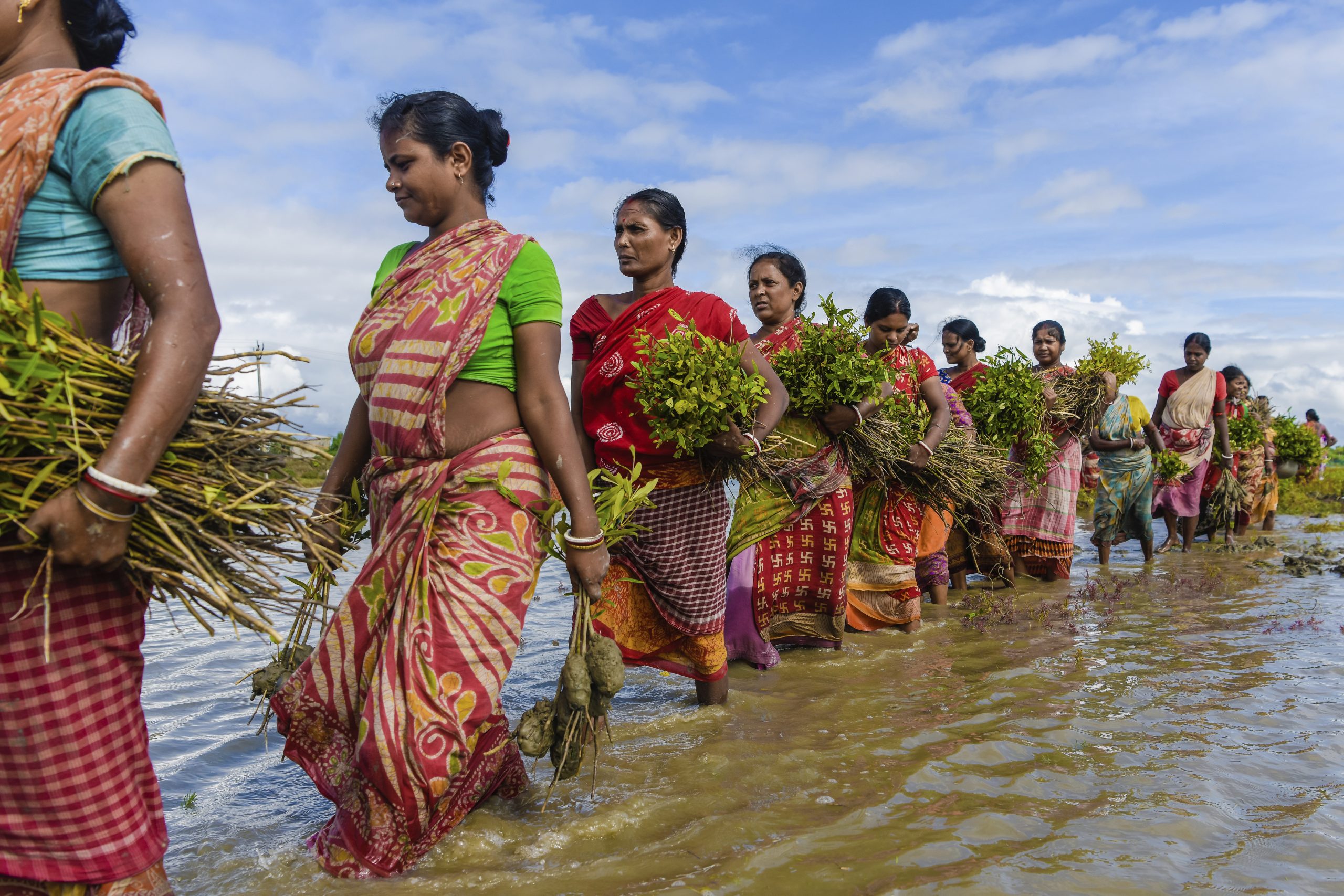News
Driving decisions for nature and people: UNEP-WCMC’s 2023-2024 Impact Report

Impact | Jun 2025
UNEP-WCMC has today launched its 2023-2024 impact report, showcasing the ways in which the Centre has brought about action for nature over the last two years.
As the report notes from the outset, our impacts are myriad. They range from developing high-profile reports that inform decisions on a global scale, to guiding negotiations at international meetings, to providing in-person support through training and workshops.
Providing world-leading data and tools
Science and data underpin all of UNEP-WCMC’s work. We manage, analyze and derive insight from nature-related data, allowing the tracking of progress towards global biodiversity targets, and supporting decision making at all scales across the public and private sectors. For example, the Protected Planet Report 2024 revealed that although progress is being made towards 30 per cent of the planet being conserved by 2030, it is not happening nearly fast enough.
Meanwhile, our work to document the state of the world’s migratory species culminated in a first-of-its-kind report, which highlighted that one in five species listed in the Convention on Migratory Species is under global threat. The report’s findings were highly influential in the development of new measures to protect a range of migratory species, including sand tiger sharks, chimpanzees and giraffes.
Alongside the world-leading data that we disseminate, we also build sophisticated tools that enable better understanding of societies’ and economies’ impacts and dependencies on the natural world. For example, we collaborated with the UN Development Programme and the Convention on Biological Diversity to further develop the UN Biodiversity Lab, which enables high-quality data to be incorporated into spatial planning as a basis for driving decisions at a local, national and international level.
With just five years remaining to achieve key targets within the Kunming-Montreal Global Biodiversity Framework we must collectively step up the urgency and ambition of our action in all parts of the world. UNEP-WCMC remains steadfast in our commitment to working with partners to enable this change towards a sustainable future for people and planet.
Neville Ash, Director, UNEP-WCMC
Offering vital guidance and support
Advising and supporting governments as they deliver on their commitments is a vital part of our work at the Centre. Our role in guiding the development of national ecosystem assessments has been particularly notable: we have worked with experts in Azerbaijan, Bosnia and Herzegovina, Cambodia, Grenada and Malawi to help progress their assessments, which have already begun to influence national legislation, policy and planning.
The TRADE Hub was a five-year global initiative to improve the sustainability of trade of commodities associated with deforestation, such as soy, coffee and bamboo. We collaborated with a wide range of groups – from academics to smallholder farmers – to understand their diverse needs and then shared these findings with governments, informing key policy decisions.
Alongside our work with governments, we have led on engagement with businesses and financial institutions to support their alignment with ambitions for nature. We strengthen their capacity to identify environmental risks and opportunities, mitigate adverse impacts and enhance biodiversity through their strategies, operations and supply chains. The result is growing momentum to embed and act on nature-related risk within regulations and disclosures. The ENCORE tool which we developed in collaboration with Global Canopy and the UNEP Finance Initiative now has 10,000 users worldwide, and continues to grow. Meanwhile, we brought 175 business, finance and conservation leaders together at the first Nature Action Dialogues, which demonstrated the power of the face-to-face exchange of knowledge and ideas.
As we look ahead to 2025 and beyond, we’re refreshing our strategy and building upon the successes and lessons learned from recent years as we continue to support both the public and private sector in taking action for nature.
Download the full Impact Report 2023-2024 here
Main image: Women queueing to plant mangrove saplings along the riverbanks of the Matla River in Sundarbans, India. Photo: Avijit Ghosh / Climate Visuals
Have a query?
Contact us
communications@unep-wcmc.org
